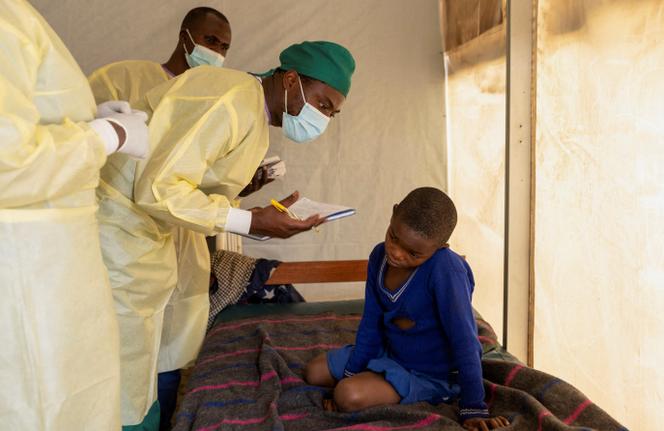


The fight against mpox (formerly monkeypox) has gained momentum. On the advice of a group of experts, the director of the World Health Organization (WHO), Tedros Adhanom Ghebreyesus – known as "Dr. Tedros" – decided on Wednesday, August 14, to declare a public health emergency of international concern (PHEIC) against the disease, which has been raging since the beginning of the year in more than a dozen African countries.
This is the organization's highest alert level, which it has triggered for the second time against this disease since 2022. Other epidemics have been the subject of emergency declarations: H1N1 influenza (2009-2010), Ebola (2013-2016 then 2019-2020), polio since 2014, the Zika virus (2016) and Covid-19 (2020-2023). Notably, the PHEIC declaration enables the UN organization to prioritize its resources more effectively in the fight against mpox at a time when it's working with a tight budget, set in May at its annual meeting. It is also the only tool at its disposal for mobilizing all its member countries in an emergency situation.
Dr. Tedros justified this decision at a press conference on Wednesday evening by citing "the detection and rapid spread of a new clade [a viral strain] in eastern DRC [Democratic Republic of the Congo], its detection in neighboring countries that had not previously reported mpox and the potential for further spread within Africa and beyond."
This new clade, called "1b," was first identified in September 2023 in the Kamituga mining region of South Kivu. Since then, it has spread to neighboring countries previously spared from the disease: Burundi, Kenya, Rwanda and Uganda, where some 90 cases have been identified in recent months.
Since the start of the year, more than 17,000 probable cases have been reported in over 13 countries, with 517 deaths to date, mainly in the DRC. This represents an acceleration of the epidemic compared to the more than 7,000 cases recorded in 2022 and almost 15,000 cases in 2023. "This is just the tip of the iceberg when we consider the many weaknesses in surveillance, laboratory testing and contact tracing," commented Africa CDC in a statement.
"This is something that should concern us all," added Dr. Tedros, adding, "WHO is committed in the days and weeks ahead to coordinate the global response, working closely with each of the affected countries, and leveraging our on-the-ground presence, to prevent transmission, treat those infected, and save lives."
You have 66.04% of this article left to read. The rest is for subscribers only.
